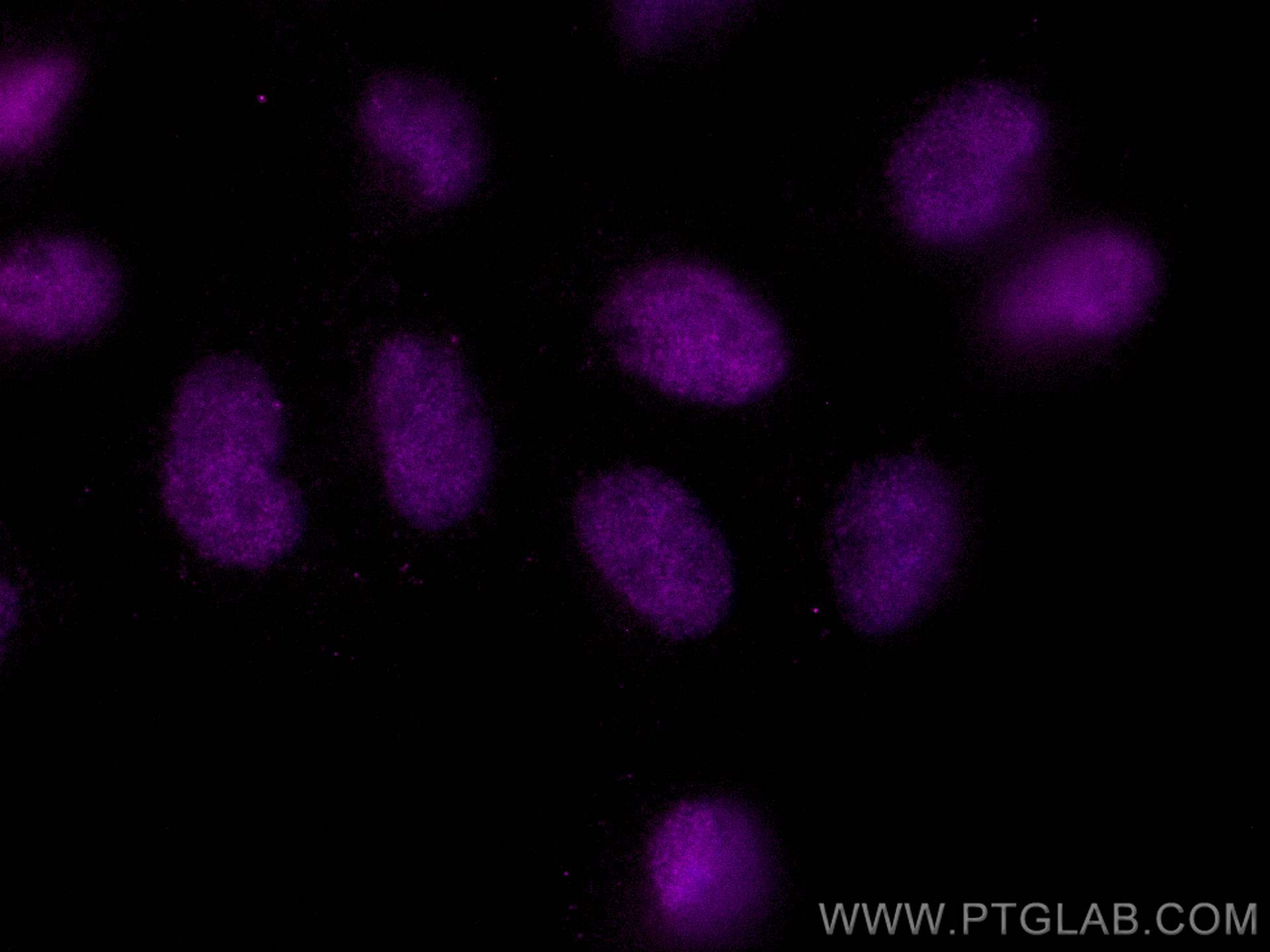Tested Applications
| Positive IF/ICC detected in | A431 cells |
67775-1-Ig
Recommended dilution
| Application | Dilution |
|---|---|
| Immunofluorescence (IF)/ICC | IF/ICC : 1:500-1:2000 |
| It is recommended that this reagent should be titrated in each testing system to obtain optimal results. | |
| Sample-dependent, Check data in validation data gallery. | |
Product Information
CL647-67775 targets ANKRD1 in IF/ICC applications and shows reactivity with Human, mouse, rat, rabbit, pig samples.
| Tested Reactivity | Human, mouse, rat, rabbit, pig |
| Host / Isotype | Mouse / IgG2b |
| Class | Monoclonal |
| Type | Antibody |
| Immunogen |
CatNo: Ag29974 Product name: Recombinant human ANKRD1 protein Source: e coli.-derived, PET28a Tag: 6*His Domain: 1-319 aa of BC018667 Sequence: MMVLKVEELVTGKKNGNGEAGEFLPEDFRDGEYEAAVTLEKQEDLKTLLAHPVTLGEQQWKSEKQREAELKKKKLEQRSKLENLEDLEIIIQLKKRKKYRKTKVPVVKEPEPEIITEPVDVPTFLKAALENKLPVVEKFLSDKNNPDVCDEYKRTALHRACLEGHLAIVEKLMEAGAQIEFRDMLESTAIHWASRGGNLDVLKLLLNKGAKISARDKLLSTALHVAVRTGHYECAEHLIACEADLNAKDREGDTPLHDAVRLNRYKMIRLLIMYGADLNIKNCAGKTPMDLVLHWQNGTKAIFDSLRENSYKTSRIATF Predict reactive species |
| Full Name | ankyrin repeat domain 1 (cardiac muscle) |
| Calculated Molecular Weight | 319 aa, 36 kDa |
| GenBank Accession Number | BC018667 |
| Gene Symbol | ANKRD1 |
| Gene ID (NCBI) | 27063 |
| RRID | AB_3084827 |
| Conjugate | CoraLite® Plus 647 Fluorescent Dye |
| Excitation/Emission Maxima Wavelengths | 654 nm / 674 nm |
| Form | Liquid |
| Purification Method | Protein A purification |
| UNIPROT ID | Q15327 |
| Storage Buffer | PBS with 50% glycerol, 0.05% Proclin300, 0.5% BSA, pH 7.3. |
| Storage Conditions | Store at -20°C. Avoid exposure to light. Stable for one year after shipment. Aliquoting is unnecessary for -20oC storage. |
Background Information
Ankyrin repeat domain-containing protein 1(ANKRD1) belongs to the conserved muscle ankyrin repeat protein(MARP) family, whose expression is induced in response to physiologic stress, injury and hypertrophy. Thus its expression mainly in activated vascular endothelial cells. ANKRD1 may regulate SMC proliferation through the CDKN1A pathway. It functions as a nuclear transcription repressor that regulate cardiac gene's expression
Protocols
| Product Specific Protocols | |
|---|---|
| IF protocol for CL Plus 647 ANKRD1 antibody CL647-67775 | Download protocol |
| Standard Protocols | |
|---|---|
| Click here to view our Standard Protocols |




